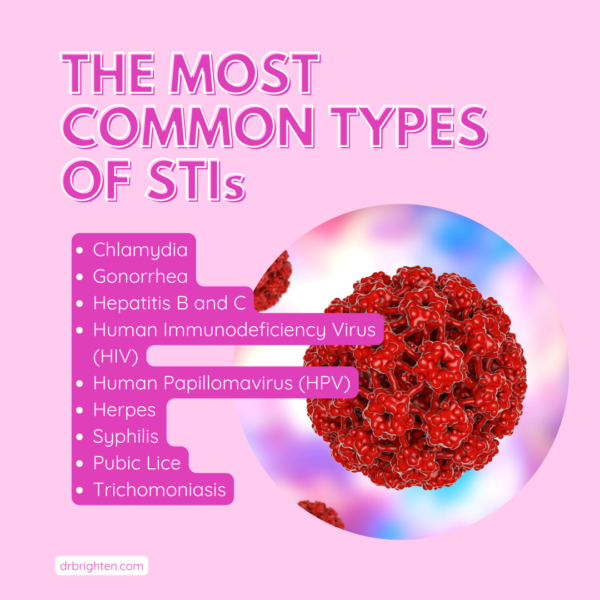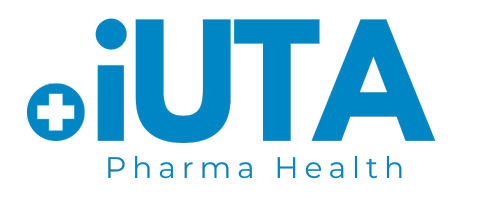Skin Care
Most Common Sexually Transmitted Infections (STDs)
Sexually Transmitted Diseases (STDs) occur when infections spread from one person to another through sexual contact. They can affect anyone, regardless of age or gender, and some STDs cause serious health problems if untreated. However, the right care can prevent and treat most STIs. STDs result from Sexually Transmitted Infections (STIs), and both terms are often used interchangeably since STDs develop when STIs show signs and symptoms.

Types of STDs
STDs are generally classified into three main categories:
Bacterial – These are caused by bacteria and can usually be cured with antibiotics. Examples include Chlamydia, Gonorrhea.
Viral – These are caused by viruses and may not always be curable, but they can be managed with medication. Examples include HIV/AIDS, Genital herpes.
Parasitic– These are caused by tiny parasites and can often be treated with medication. Examples include Trichomoniasis, Pubic lice (Crabs).
Mode of Transmission
Sexually transmitted diseases spread through various forms of sexual contact, including:
- Unprotected vaginal, oral, or anal sex with an infected person.
- Sharing needles or syringes for drug use or tattoos.
- From mother to baby during childbirth.
- Close skin-to-skin contact, especially with viral infections like herpes.
Signs and Symptoms
Many sexually transmitted diseases show no symptoms, but some common signs include:
- Pain or burning while urinating
- Unusual discharge from the genitals
- Sores, blisters, or warts around the genital or mouth area
- Itching, irritation, or rash in the genital region
- Unexplained fever or fatigue
Prevention and Treatment of STDs:
Prevention:
-
Using condoms correctly during sexual activity
-
Getting vaccinated against certain STIs like HPV and hepatitis B
-
Having regular STI tests, especially if sexually active
-
Limiting sexual partners and practicing mutual monogamy
-
Avoiding shared needles
-
Avoid sex just after shaving, as male condoms do not cover the groin area.
Treatment:
It depends on the type of STD. Bacterial and parasitic STDs can usually be cured with medication, while viral STDs can be managed with antiviral drugs to reduce symptoms.
When to Seek Medical Help:
If you notice any unusual symptoms or have had unprotected sex, see a doctor as soon as possible, preferably within 72 hours. Regular testing is also essential, even if you feel fine, since many STDs do not cause immediate symptoms.
CONCLUSION
STDs are common but preventable infections. Practicing safe sex, getting tested regularly, and seeking timely medical care help protect you and your partners. Detecting and treating STDs early prevents complications, so always seek medical advice when needed.
Monday to Friday :
9am – 8pm
Saturday :
10am – 7pm
Sunday :
10am – 6pm
